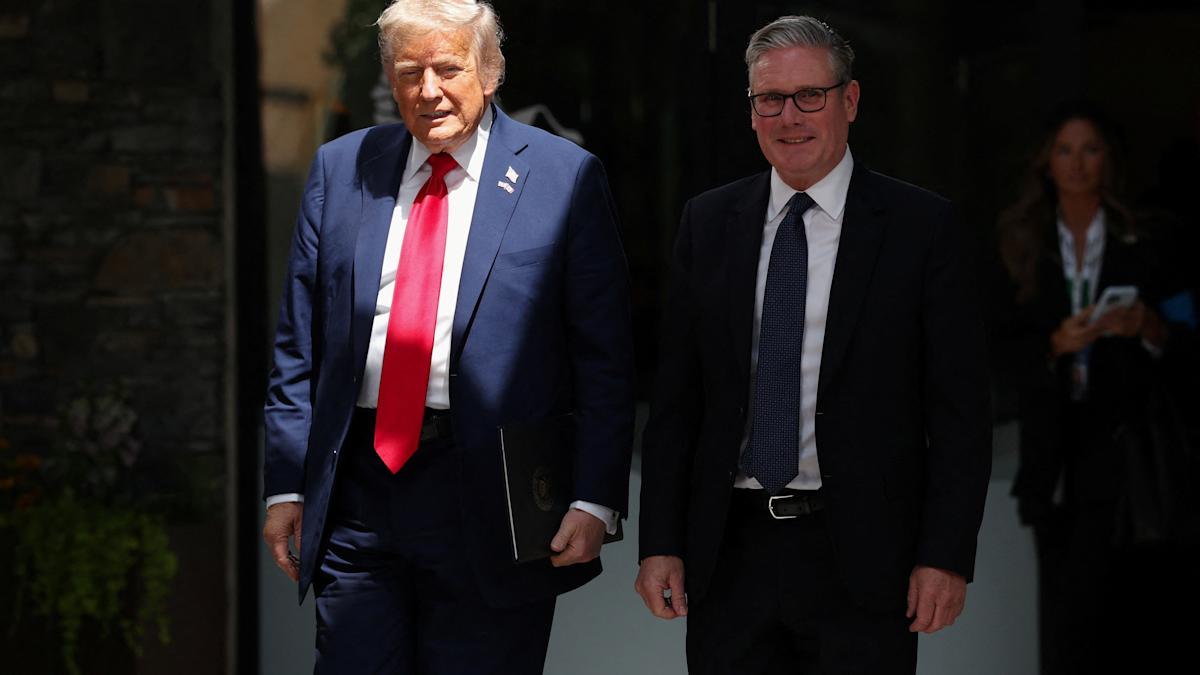Donald Trump and Sir Keir Starmer have finalised a US-UK deal that will slash trade barriers on goods from both countries, but leaves the future of tariffs on British steel up in the air.
The Prime Minister said the move marked a “very important day” for both sides as the US president announced the agreement was “done” in a joint appearance on the sidelines of the G7 summit in Canada.
The deal will grant British carmakers a reprieve by the end of June as levies drop from 25% to 10%, while the aerospace sector will face no import taxes.
But tariffs for the steel industry, which is of key economic importance to the UK, will stand at 25% for now rather than falling to zero as originally agreed. This is less than the US global rate of 50% for steel and aluminium.
The Prime Minister described the pact as a “sign of strength” in the transatlantic relationship, while Mr Trump praised Sir Keir as a “friend” who had done a “great job” securing the deal that eluded leaders before him.
Following the hastily arranged meeting, the two leaders posed for pictures outside the G7 venue with the signed documents, which the US president dropped before Sir Keir picked them up.
Mr Trump also mistakenly referred to the pact as a “trade agreement with the European Union.”
In an impromptu media spray, the US president was asked whether steel tariffs would be eliminated, to which he replied: “We’re gonna let you have that information in a little while.”
Prime Minister Sir Keir Starmer picks up UK-US trade deal papers dropped by US President Donald Trump before speaking to the media (Stefan Rousseau/PA)
The Department for Business and Trade said the two leaders had pledged to “make progress towards 0% tariffs on core steel products as agreed”.
Asked whether Britain would be shielded from future tariffs, Mr Trump said the UK was protected “because I like them”.
“The UK is very well protected, you know why? Because I like them. That’s their ultimate protection,” he said.
The PM told the US President: “Donald, thank you very much… A really important agreement. And so this is a very good day for both of our countries, a real sign of strength.”
The terms of the deal were agreed in May, but neither Washington nor London had yet taken the necessary steps to reduce tariffs.
Reports have since suggested the US could also push for the NHS to pay more for American drugs in exchange for softened tariffs, with White House sources telling the Telegraph the service would be expected to pay higher prices.
Downing Street insisted the Government will “only ever sign trade agreements that align with the UK’s national interests” but did not rule out discussing the issue with Washington.
The Prime Minister was also insistent that a nuclear submarine deal between the UK, US and Australia, called Aukus, is “very important” to both the United States and Britain.
Story continues
